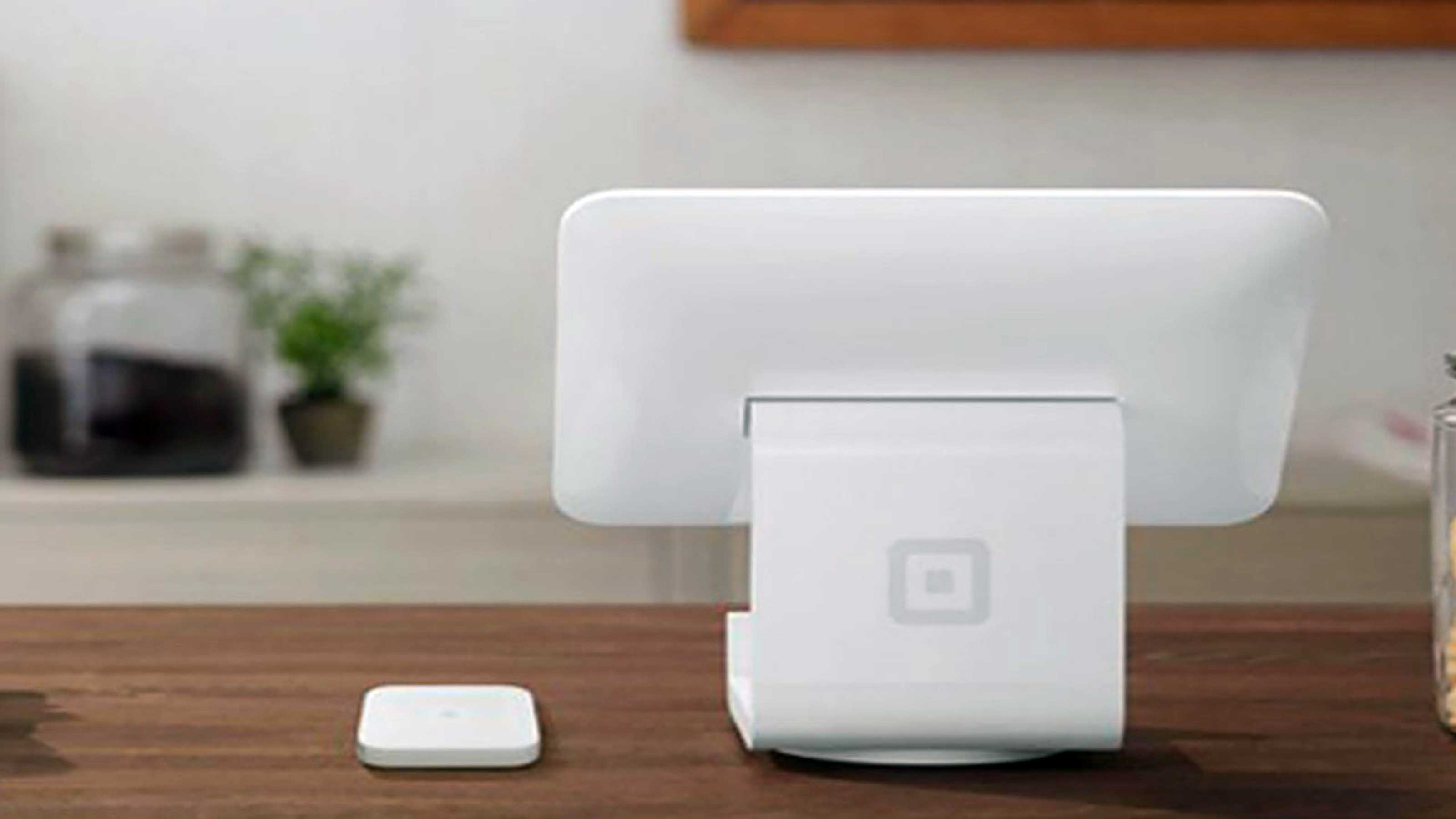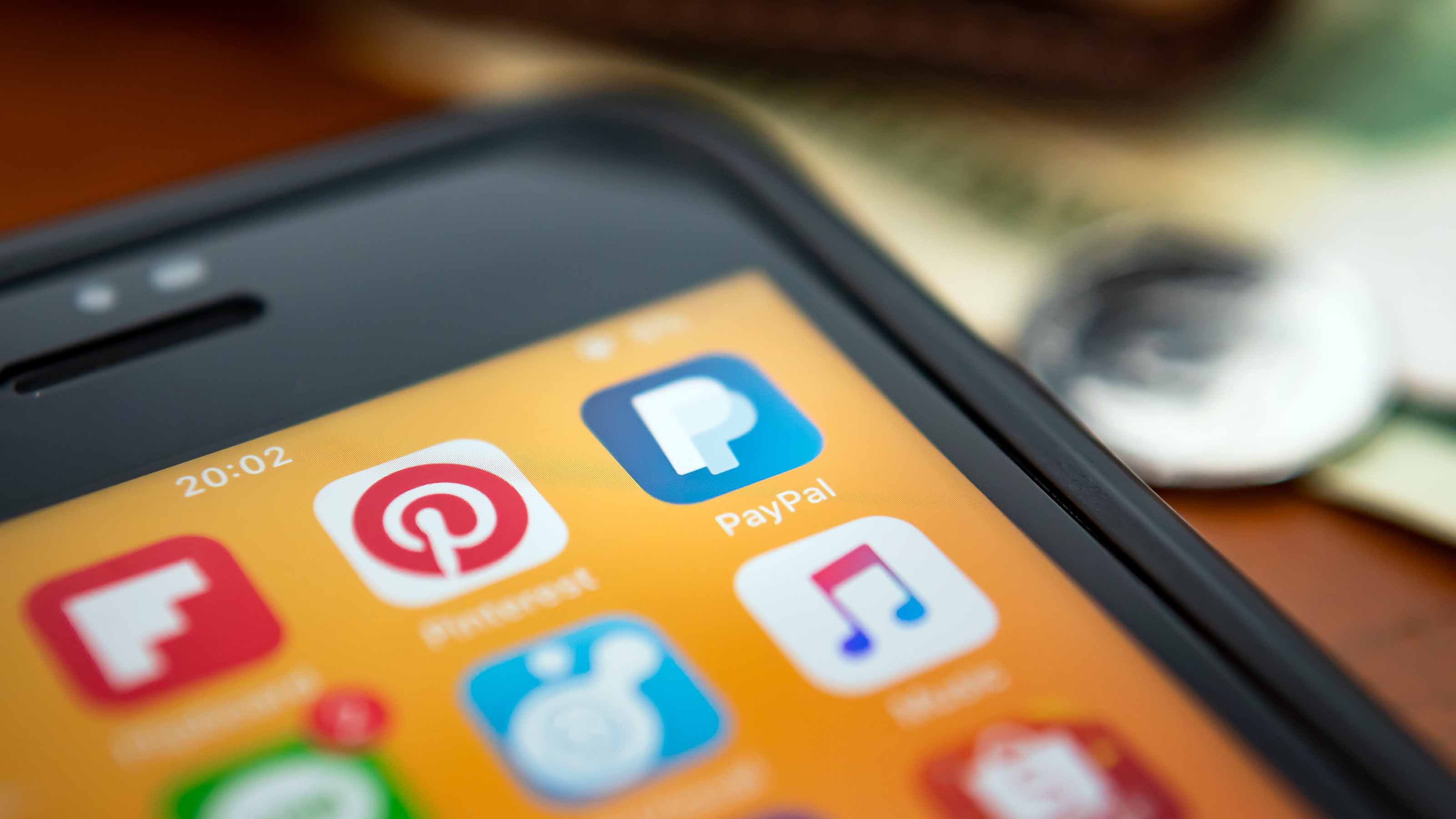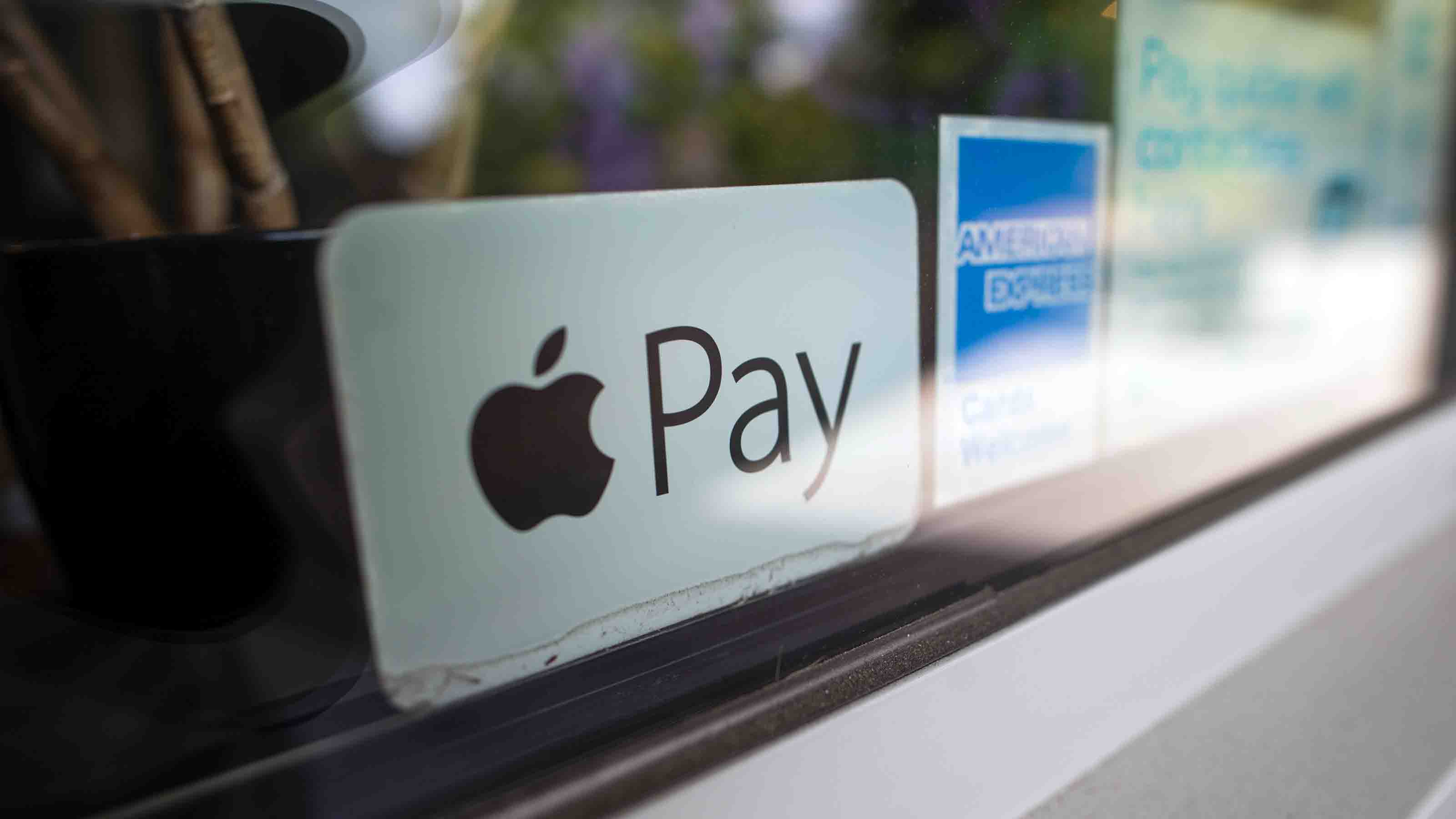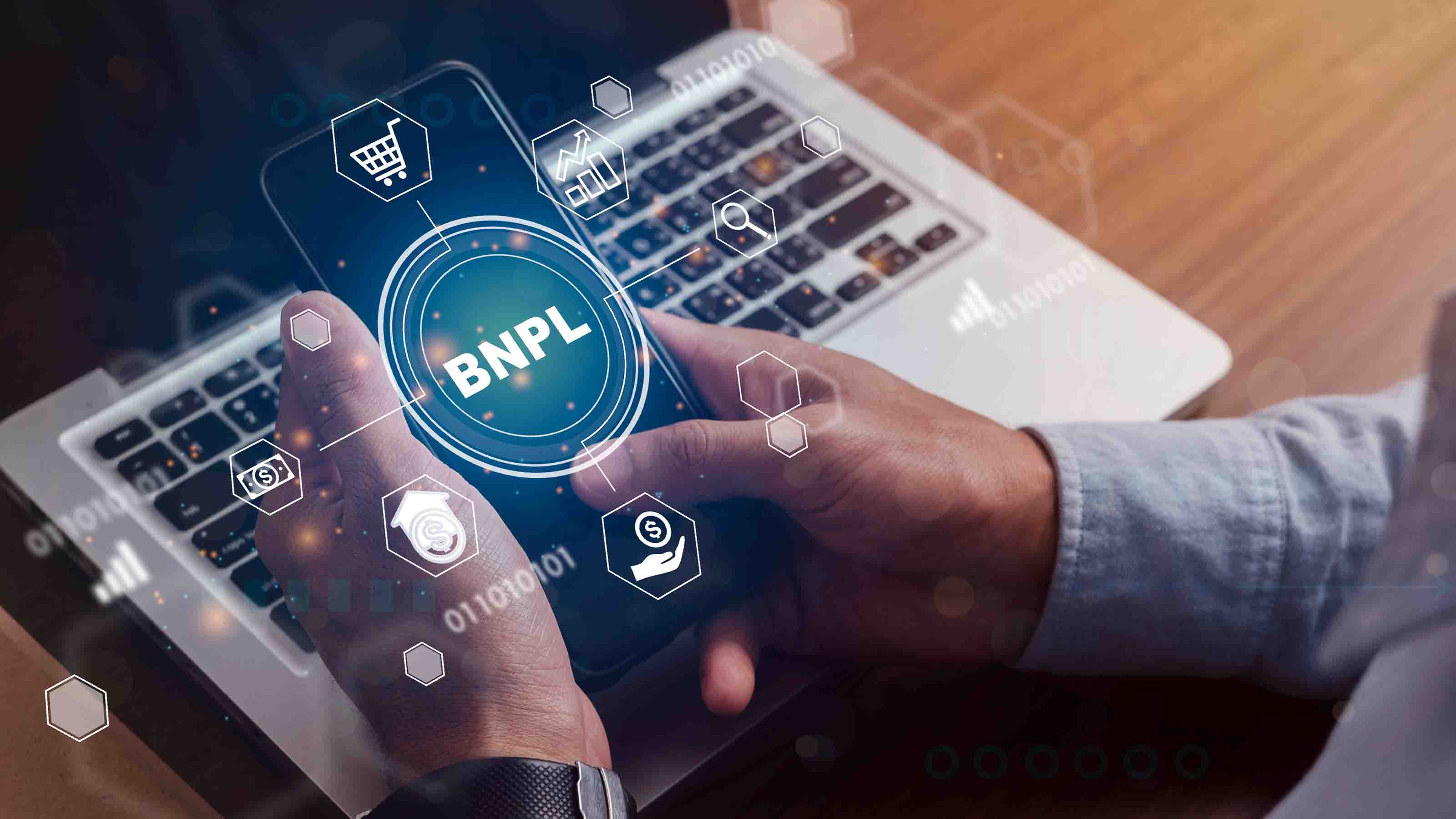Buy Now, Pay Later: 5 BNPL Stocks to Buy
The popularity of buying via 'buy now, pay later' has exploded of late, propping up pure plays and drawing the interest of larger fintech firms.


Profit and prosper with the best of Kiplinger's advice on investing, taxes, retirement, personal finance and much more. Delivered daily. Enter your email in the box and click Sign Me Up.
You are now subscribed
Your newsletter sign-up was successful
Want to add more newsletters?

Delivered daily
Kiplinger Today
Profit and prosper with the best of Kiplinger's advice on investing, taxes, retirement, personal finance and much more delivered daily. Smart money moves start here.

Sent five days a week
Kiplinger A Step Ahead
Get practical help to make better financial decisions in your everyday life, from spending to savings on top deals.

Delivered daily
Kiplinger Closing Bell
Get today's biggest financial and investing headlines delivered to your inbox every day the U.S. stock market is open.

Sent twice a week
Kiplinger Adviser Intel
Financial pros across the country share best practices and fresh tactics to preserve and grow your wealth.

Delivered weekly
Kiplinger Tax Tips
Trim your federal and state tax bills with practical tax-planning and tax-cutting strategies.

Sent twice a week
Kiplinger Retirement Tips
Your twice-a-week guide to planning and enjoying a financially secure and richly rewarding retirement

Sent bimonthly.
Kiplinger Adviser Angle
Insights for advisers, wealth managers and other financial professionals.

Sent twice a week
Kiplinger Investing Weekly
Your twice-a-week roundup of promising stocks, funds, companies and industries you should consider, ones you should avoid, and why.

Sent weekly for six weeks
Kiplinger Invest for Retirement
Your step-by-step six-part series on how to invest for retirement, from devising a successful strategy to exactly which investments to choose.
Buy now, pay later (BNPL) financing has become big business in recent years, helping to propel both specific BNPL stocks and larger firms with interests in the industry.
Buy now, pay later is effectively an installment loan. A customer will typically make a handful of equal payments for a product or service, with the first payment usually paid up front. The remainder are usually scattered across a few weeks or months, with some vendors charging interest and others choosing not to.
According to Worldpay, approximately 2.1% of all global e-commerce transactions in 2020 involved a BNPL platform. That's $97 billion, and that number is extremely likely to grow. A LendingTree survey conducted in March 2021 found that roughly a third of consumers had used a BNPL service. Of those, 62% have used it five times or more to pay for something, and 81% said they're likely to do it again.
As a result of the potential volumes processed through these point-of-sale loans, fintech companies large and small are getting involved in BNPL. The BNPL platforms argue that their service trumps the use of credit cards; others believe it's another payday lending scandal ready to happen.
"We don't profit from our customers' mistakes and misfortunes," Affirm Holdings (AFRM) CEO Max Levchin told Fortune after his company went public in 2021. "The entire premise of the credit card industry is based on late fees. Deferred interest is a terrible product."
However, that same LendingTree survey found that more than 70% of those who have used a BNPL service incurred fees or interest charges for missed payments. And a third of BNPL users were unaware of the interest rate and fees they pay to use the service. So while this is a growth story, it's one to be monitored closely.
Those willing to brave the plunge into this space can start with these five BNPL stocks to buy. The names on this list are benefiting from the push by consumers to spread their payments over longer periods. The biggest risk they face are stricter regulations imposed by various federal and state consumer protection agencies.
Data is as of March 29. Analyst ratings courtesy of S&P Global Market Intelligence.

Block
- Market value: $85.2 billion
- Analysts' ratings: 26 Strong Buy, 10 Buy, 9 Hold, 1 Sell, 1 Strong Sell
In early February, Square parent Block (SQ, $146.84) jumped into the BNPL game in a big way by acquiring Australian-based Afterpay for $29 billion in stock. Block granted 0.375 SQ shares for every Afterpay share held.
The combination of Afterpay with Block's Seller and Square App platforms created a mobile payments giant with millions of customers and merchants around the world. In fiscal 2021, Afterpay processed $22.4 billion in transactions.
Argus Research discussed the Afterpay acquisition in a March 4 note to clients.
"We believe strong cross-selling opportunities exist between the companies, as Block integrates Afterpay into its Seller and Cash App platforms," says Argus Research analyst Stephen Biggar, who rates SQ stock at Buy. "Greater integration of these platforms has been a long-standing goal for the company. BNPL allows customers to receive products immediately and pay for their purchases over installments, free from interest and service fees for customers who pay on time."
In late February, Block introduced Afterpay Buy Now Pay Later to its U.S. and Australian online sellers. It intends to further integrate Afterpay's platform throughout 2022.
At the end of December, Afterpay had more than 122,000 annual active merchants, 64% higher than a year earlier. On the consumer side, it had more than 19 million annual active consumers, up 47%. Afterpay's gross merchandise volume (GMV) in fiscal 2021 was $19.7 billion, 74% higher than a year earlier.
As for Block itself, CFO Amrita Ahuja pointed out in its Q4 2021 conference call with analysts that its Square Seller business had six revenue streams in 2021 that generated more than $100 million or more in gross profit, while its Cash App business had four revenue streams of more than $200 million in gross profit.
Block is one of the best-rated BNPL stocks to buy, boasting 36 Strong Buy or Buy ratings versus just nine Holds, one Sell and one Strong Sell.

Affirm Holdings
- Market value: $13.7 billion
- Analysts' ratings: 5 Strong Buy, 3 Buy, 5 Hold, 0 Sell, 1 Strong Sell
Affirm Holdings (AFRM, $48.15), a San Francisco-based BNPL platform for digital and mobile-first commerce, went public at $49 per share in January 2021. It hit $100 on its first day of trading, and as recently as November, Affirm's share price traded at a 52-week high of $176.65.
The BNPL stock is down 76% in the roughly four months since.
You can chalk some of that up to the broader market cooling off. But speculative, high-growth companies unable to post profits have been specifically targeted, and AFRM fits that bill.
For instance, its fiscal second-quarter earnings report, out in February, revealed $4.5 billion in GMV that was 115% higher year-over-year (YoY). Active merchants increased by 8,000, to 168,000, while active consumers rocketed 150% YoY to 11.2 million (and 29% sequentially from Q1). Overall, revenues were 77% better YoY to $361.0 million.
But Affirm doesn't make money. It reported an adjusted operating loss of $7.9 million in the second quarter, and $53.0 million for the first half of 2022 – considerably higher than the $4.8 million loss it absorbed in the first half of 2021.
Analysts have widely had to temper their expectations, but Wall Street largely still counts Affirm among the best buy now, pay later stocks to buy.
Truist analyst Andrew Jeffrey, for instance, lowered his price target on AFRM in March, to $55 per share from $100, putting the stock at 9.5 times calendar 2023 revenue at the time. But he reiterated his Buy rating.
"While we recognize that the stock will likely face near-term pressure, and revenue multiples are inherently subjective, we see Affirm a long-term winner in the nascent BNPL market," Jeffrey says, recommending investors add to their positions on future weakness.

PayPal Holdings
- Market value: $141.2 billion
- Analysts' ratings: 25 Strong Buy, 12 Buy, 10 Hold, 0 Sell, 1 Strong Sell
PayPal Holdings (PYPL, $121.18) is the latest BNPL player to face a class action lawsuit. On March 1, a $5 million class action complaint was filed in a California federal court against the company. The suit claims that PayPal doesn't sufficiently inform users of its "Pay in 4" offer about potential insufficient fund fees and overdraft charges.
Buy now, pay later has become the latest revenue generator for the digital payments company. In December, CEO Dan Schulman said PayPal had more than 750,000 BNPL transactions on Black Friday, 400% higher than a year earlier.
PayPal said in its fourth-quarter conference call that buy now, pay later is available in eight markets, including the U.S. In the fourth quarter, BNPL accounted for $3.2 billion in total payment volume (TPV), 325% higher than a year earlier. Approximately 13 million consumers and 1.2 million merchants have used its BNPL services.
Like with Affirm and other BNPL stocks, PayPal has suffered several price-target reductions in recent months, even though the Street is still widely bullish on shares.
"We assume PayPal can achieve its 15-20 million 2022 NNA [net new active accounts] growth target, and beyond 2022 will return to the midpoint of its historical 30-40 million annual NNA growth through international expansion, share gains from BNPL and acquisitions," UBS analyst Rayna Kumar wrote in February. While she lowered her price target to $158 from $218, she maintained a Buy rating on the stock.
The current median price target for PYPL is $190, implying that Wall Street on average sees 57% upside from here.

Apple
- Market value: $2.9 trillion
- Analysts' ratings: 27 Strong Buy, 7 Buy, 7 Hold, 1 Sell, 1 Strong Sell
Bloomberg reported in July 2021 that Apple (AAPL, $178.96) was working with Goldman Sachs (GS) to launch a buy now, pay later offering not tied to the Apple Card. (Apple has partnered with Goldman on its Apple Card since 2019.)
The BNPL service is tentatively to be called Apple Pay Later. Consumers buying a product or service using Apple Pay would be able to pay in four biweekly interest-free payments. Alternatively, they could opt to pay over several months with interest.
Apple currently offers monthly installments when you use your Apple Card at Apple, whether in person or online. Apple Pay Later would extend this beyond Apple products and services.
Fast-forward to late March, and the company announced it would buy U.K.-based fintech Credit Kudos for $150 million. Credit Kudos has developed software that enables third-party companies to gain a more up-to-date credit profile for loan candidates using consumer financial data accessed through secure application programming interfaces (APIs).
Apple is thought to have acquired the company to further its ambitions regarding Apple Pay and BNPL. According to data from Pymnts.com, only 6% of U.S. consumers who have Apple Pay on their phones have actually used it to make an in-store purchase. BNPL would likely increase the take rate for Apple Pay.
In addition to Apple's future BNPL plans, buying Credit Kudos is thought to help the company's plans to get the Apple Card into the U.K., broadening the scope of the card's use.

Zip
- Market value: $762.7 million
- Analysts' ratings: N/A
In a sign consolidation is coming to buy now, pay later, Australian BNPL company Zip Co. (ZIZTF, $1.14) announced on Feb. 27 that it would buy Minneapolis-based Sezzle for $352.6 million.
The all-stock purchase is a 32% premium to Sezzle's 30-day volume weighted average price on the Australian Securities Exchange. Sezzle shareholders will receive 0.98 Zip shares for each share held in Sezzle. Zip shareholders will own 78% of the combined entity. Together, they'll have 8.8 million customers and 60,500 merchants using their BNPL platforms in the U.S.
"We are delighted to be bringing Zip and Sezzle together under a transformational transaction that is expected to deliver immediate scale and enhanced growth, which will support our path to profitability," says Zip co-founder and Global CEO Larry Diamond. "Combining with Sezzle positions us as a leading global BNPL provider and prioritizes our ability to win in the important U.S. market."
At the same time Zip announced its purchase of Sezzle, it also announced six-month results (July to December 2021) that included a loss of 108 million Australian dollars ($80.9 million).
Sezzle CEO Charlie Youakim will become CEO of the merged entity's Americas business, and he's one of three Sezzle insiders to join Zip's board.
Zip also acquired U.S.-based BNPL company QuadPay in 2020 for almost $300 million.
That said, Zip is the most difficult of the BNPL stocks to invest in. Here in the U.S., it only offers thinly traded over-the-counter shares, with daily volume in the hundreds, meaning that anyone interested in buying will want to use limit orders. For those able to access the Australian Stock Exchange, shares trade as Z1P.
Profit and prosper with the best of Kiplinger's advice on investing, taxes, retirement, personal finance and much more. Delivered daily. Enter your email in the box and click Sign Me Up.

Will has written professionally for investment and finance publications in both the U.S. and Canada since 2004. A native of Toronto, Canada, his sole objective is to help people become better and more informed investors. Fascinated by how companies make money, he's a keen student of business history. Married and now living in Halifax, Nova Scotia, he's also got an interest in equity and debt crowdfunding.
-
 Dow Leads in Mixed Session on Amgen Earnings: Stock Market Today
Dow Leads in Mixed Session on Amgen Earnings: Stock Market TodayThe rest of Wall Street struggled as Advanced Micro Devices earnings caused a chip-stock sell-off.
-
 How to Watch the 2026 Winter Olympics Without Overpaying
How to Watch the 2026 Winter Olympics Without OverpayingHere’s how to stream the 2026 Winter Olympics live, including low-cost viewing options, Peacock access and ways to catch your favorite athletes and events from anywhere.
-
 Here’s How to Stream the Super Bowl for Less
Here’s How to Stream the Super Bowl for LessWe'll show you the least expensive ways to stream football's biggest event.
-
 Nasdaq Slides 1.4% on Big Tech Questions: Stock Market Today
Nasdaq Slides 1.4% on Big Tech Questions: Stock Market TodayPalantir Technologies proves at least one publicly traded company can spend a lot of money on AI and make a lot of money on AI.
-
 Stocks Close Down as Gold, Silver Spiral: Stock Market Today
Stocks Close Down as Gold, Silver Spiral: Stock Market TodayA "long-overdue correction" temporarily halted a massive rally in gold and silver, while the Dow took a hit from negative reactions to blue-chip earnings.
-
 S&P 500 Hits New High Before Big Tech Earnings, Fed: Stock Market Today
S&P 500 Hits New High Before Big Tech Earnings, Fed: Stock Market TodayThe tech-heavy Nasdaq also shone in Tuesday's session, while UnitedHealth dragged on the blue-chip Dow Jones Industrial Average.
-
 Dow Rises 313 Points to Begin a Big Week: Stock Market Today
Dow Rises 313 Points to Begin a Big Week: Stock Market TodayThe S&P 500 is within 50 points of crossing 7,000 for the first time, and Papa Dow is lurking just below its own new all-time high.
-
 Nasdaq Leads Ahead of Big Tech Earnings: Stock Market Today
Nasdaq Leads Ahead of Big Tech Earnings: Stock Market TodayPresident Donald Trump is making markets move based on personal and political as well as financial and economic priorities.
-
 11 Stock Picks Beyond the Magnificent 7
11 Stock Picks Beyond the Magnificent 7With my Mag-7-Plus strategy, you can own the mega caps individually or in ETFs and add in some smaller tech stocks to benefit from AI and other innovations.
-
 Dow Dives 870 Points on Overseas Affairs: Stock Market Today
Dow Dives 870 Points on Overseas Affairs: Stock Market TodayFiscal policy in the Far East and foreign policy in the near west send markets all over the world into a selling frenzy.
-
 Small Caps Can Only Lead Stocks So High: Stock Market Today
Small Caps Can Only Lead Stocks So High: Stock Market TodayThe main U.S. equity indexes were down for the week, but small-cap stocks look as healthy as they ever have.
